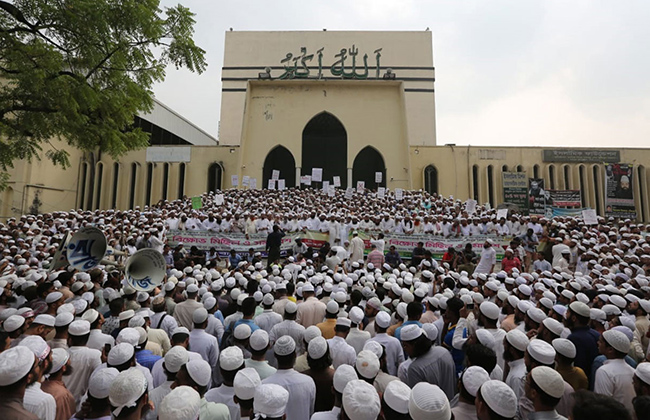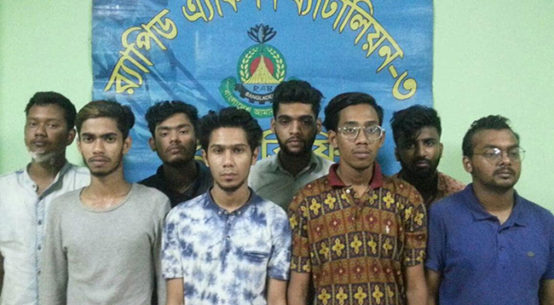
Although the Hefazat and the shushil community in Bangladesh and abroad were convinced about Islamist power, the government it appears wasn’t. Some saw in Hefazat an overwhelming monster that could swallow their vision of Bangladesh. To the government, it seems, it was another threat to manage.
BNP had also bought the idea that Hefazat could sweep AL from power in 2013 and supported them till the end. However, on the night, when the bricks were supposed to crumble, the government party carried out a sit in termination campaign on Shapla Chattor and ended Hefazat’s Dhaka sojourn.
When extremists were killing bloggers, many said the government was powerless to stop them. Yet the Jongis were exterminated in a single night and they never rose as a force after the Holey Artisan Cafe attack was put down. It’s misreading the formal powers of the state that has hobbled political analysis in Bangladesh.
The government did hold Hefazat hands on several fronts including in adjusting education syllabus but not it seems because it was afraid of them but due to political convenience. This appears to have been part of a strategy to diminish its opponents.
Just as the shushils were convinced that the Hefazat was the most organized force in the country and its power was on the rise, the Hefazat also appeared to have believed this. Within the organization, one particular faction led by Babunagari, the current leader led the push. The death of Allama Shafi , the traditional leader triggered a power struggle and the Babunagari faction won.
This was quickly followed by the agitation against the Bangabndhu Murti (sculpture) plan of the government followed by the anti-Modi demos and other acts of violence including attacks on the police stations. Yet within a week after that phase, the entire Hefazat structure was pulverized, many militant leaders are inside jails, Manunul, the field leader has been accused of terrorism including linkage to Pakistan and even a killer of Sheikh Mujib. It’s obvious that the government has gone for the kill.
Hefazat itself is disabled as a political organization as Quami madrassah students are now forbidden to do politics taking away the main clout of Hefazat mobilization. New committees have been formed but that hardly matters as Hefazat has very little to manage and all bank accounts are now being investigated adding to their future misery. The Hefazat’s grand period lasted a few months and was probably so with the consent of the powers that be as it pondered the best way to plan the slay it.
The lesson that all need to learn if they are to function as citizens and residents of Bangladesh is that it’s in transition and in terms of power relations, the old rules don’t stand. Western democracy was never established here and the focus of life as corona has shown is economics not politics. It’s a reality that needs to be recognized because politics follows that rather than leads here. Hefazat didn’t pay attention to that fact and now has paid a price it never thought was possible. Reality checks are needed for political survival in Bangladesh.


